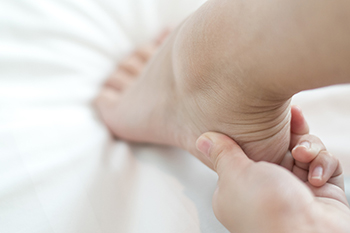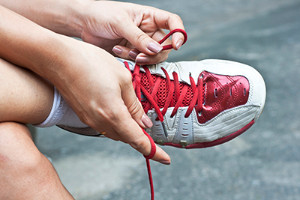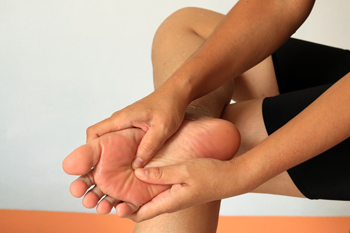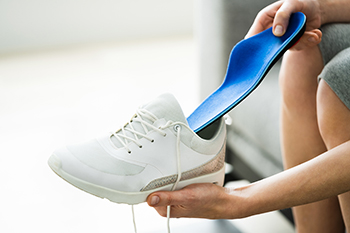
There is a part of the heel that is known as the calcaneal apophysis. This is the growth center that connects the Achilles tendon to the heel. It can become inflamed in active children and young teenagers from participating in running and jumping activities. This can cause excessive tension on the Achilles tendon, and heel pain can ensue. This condition is called Sever’s disease and can worsen when the offending activity is pursued. The pain can also affect the calf muscle and may be more severe in people who have flat feet. An X-ray can be performed which can determine the maturity of the growth center, and can also help rule out a stress fracture. Treatment can begin with temporarily stopping the activity that caused the pain and resting the foot as often as possible. There are specific stretches that can be performed for the heel and Achilles tendon. If your child has Sever’s disease, it is suggested that you schedule an appointment with a podiatrist who can effectively treat this condition.
Sever's disease often occurs in children and teens. If your child is experiencing foot or ankle pain, see one of our podiatrists from Associates in Podiatry, PC. Our doctors can treat your child’s foot and ankle needs.
Sever’s Disease
Sever’s disease is also known as calcaneal apophysitis, which is a medical condition that causes heel pain I none or both feet. The disease is known to affect children between the ages of 8 and 14.
Sever’s disease occurs when part of the child’s heel known as the growth plate (calcaneal epiphysis) is attached to the Achilles tendon. This area can suffer injury when the muscles and tendons of the growing foot do not keep pace with bone growth. Therefore, the constant pain which one experiences at the back of the heel will make the child unable to put any weight on the heel. The child is then forced to walk on their toes.
Symptoms
Acute pain – Pain associated with Sever’s disease is usually felt in the heel when the child engages in physical activity such as walking, jumping and or running.
Highly active – Children who are very active are among the most susceptible in experiencing Sever’s disease, because of the stress and tension placed on their feet.
If you have any questions, please feel free to contact our offices located in Pittsburgh-South Hills, and Pittsburgh-Bellevue, PA . We offer the newest diagnostic and treatment technologies for all your foot and ankle injuries.




